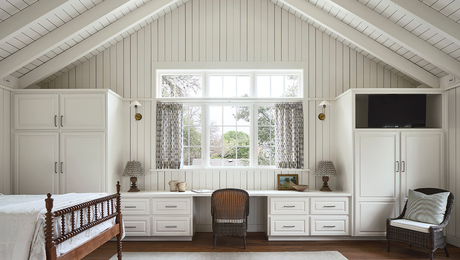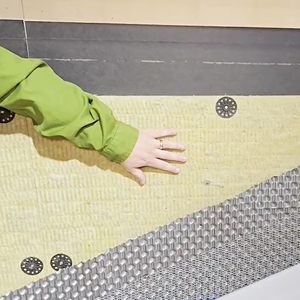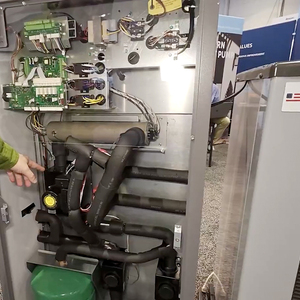*
James:
Basements are cheap. I dont’ have square foot figures in front of me but they are cheap compared to finished living space. In my area, you have to excavate for footings anyway and build at least 54″ of block so you might as well do a basement.
Basements with good perimeter drains, waterproofing, and grade do not have water problems. Older or poorly designed basements do (for the most part. There are exceptions)
Most basements go under the whole house so are usually larger than 900 sq ft.
Most people never finish thier basements and use it for storage space and a place to put the furnace and hot water heater.



















Replies
*
James:
Basements are cheap. I dont' have square foot figures in front of me but they are cheap compared to finished living space. In my area, you have to excavate for footings anyway and build at least 54" of block so you might as well do a basement.
Basements with good perimeter drains, waterproofing, and grade do not have water problems. Older or poorly designed basements do (for the most part. There are exceptions)
Most basements go under the whole house so are usually larger than 900 sq ft.
Most people never finish thier basements and use it for storage space and a place to put the furnace and hot water heater.
*
James,
Where I live, Cleveland, Oh.,homes are either full basement, crawl space or slab.As you said, with a full basement, you get that much more space. Also, most mechanical systems are run from the basement. Ever heard of a Cleveland Drop? (refers to the car ductwork on a furnace).A basement makes it so much easier to run mechanicals.Basements also provide protection from tornados. These are all just my thoughts, I really don't know any specific reasons why we have basements,but my family room is down there, and I couldn't live without it.
*
Another fine quality:
Warm in the Winter, Cool in the Summer.
ertg
*James- As A builder in northern Wi. A home without A basement is rare, what I do to prevent moisture problems is somewhat detailed but second nature due to experience with this system. I start during excavation, when the ground gets A little moist , we stop excavating and set our grade if we are in A lower area, but ussually I am building in sand. After excavation, the footings go in with perforated drain tile bleaders installed in the footings. This allows water to drain from inside the foundation into the drain tile that is ran around the perimeter of the footing inside and out. All the drain tile is returned to A sump pit which pumps out any draining water upon reaching A certain level in the pit.( Before pouring flatwok in the basement, the under ground plumbing is installed, be it additional bath , floor drains, etc. then I install 4" of crushed stone which is leveled and A heavy layer of plastic sheating is laid over the stone. In areas of future use, I install 2" dense foam for insulative value.)The poured foundation walls go in ontop of the footings along with any frostwalls. A typical basement of mine is A walk out so there is some prep in that I won't get into. Once the wall forms are pulled we apply A heavy tar and wrap that with plastic. The foundation is then backfilled, I put 18" of crushed stone on top of the drain tile and then fill to aprox. 18" below finished grade, and am ready to frame. My typical home has 9' basement walls and I acheive this by adding A 12" high stub wall of green treated 2x6 around the perimeter of the foundation. I do this to allow for exterior finish application above grade, this raises the entire home and on bigger shacks, does'nt make them look short to 1 story eaves and keeps me up when I apply half log siding, high and dry. The 12" stubwall has other benefits as well, future basement finish yeilds 8' or better ceiling. My way, though more costly, works very well and I have'nt had A damp basement yet.
*
Properly detailed foundations and footings can channel water away from 95% of foundations. There will always be a small percentage of building sites that because of water tables, improper detailing, poor surface grading, etc, may experience moistrure during some part of or during the entire year. Most moisture problems are in older houses constructed before these details were widely implemented, or built by contractors who didn't care much for either detail work of site grading. I've seen older neighborhoods that never had water problems until new subdivisions were built nearby and the developer channeled his surface water their way. Big lawsuit. Very seldom a problem, but when the problem arises, it is justifiably a "squeeky wheel" and gets a lot of attention.
When, in the north, you have to dig down four feet for frost, the added expense of another 4 feet of concrete (usually just another 20-25 yards) is well worth it to get the storage/mechanical/living space that we use basements for.
Still, moisture management is all in the details of the design...with a bit of kindness from Mother Nature.
*I've lived with all three (basement, crawlspace, and slab.) Basements can leak in old houses, been there. When they don't leak they are great for all the reasons others have detailed. Another plus, warm floors on the 1st floor, with no drafts.Crawlspaces provide some of the advantages of basements (access to mechanicals) although, not as nicely as basements. Mice, snakes, coons, bugs are also a crawlspace problem (at least at my current house!) I've only had one frozen pipe in this crawlspace, but Arkansas ain't that cold.Slabs are my least favorite actually. I don't like the lack of flex in a concrete floor, it makes my feet hurt.
*I grew up in L.A. with no basements -- and no upstairs either. Not till I came here did I understand why most of the country is different, where it freezes and you have to dig anyway (except for this insulated slab idea...). Most basements are dungeons because people don't fix them up properly -- they're left undone by the original builder -- and don't know what they're doing or assume that's just the way basements are. In sunny VA, our nearly full-height basement is rare -- most are shallower -- but what a great place to stash stuff, an extra office, a playroom, wash up paint gear, temporarily shelter materials....
*
James
Where I live, near Vancouver BC, there are several reasons to go with a basement, most of which were covered nicely by Ryan, Reinhard and ertg. Another is lot size. When I worked in the city, sq footage is very closely regulated as are height restrictions. To get the maximum of sg footage allowed it's best you go down. And it can't be overstated enough the benifits of having a cool place in the summer. And mechanical? I've done plenty all three way, (slab, crawlspace, full basement) and I'll take the full basement every time. When it comes to mechanical, it sure reduces a lot of headaches.
As for the water problems. Few places in N Amercia get more rain than we do. A properly detailed foundation and footings, as brilliantly outlined by Robert, and the problems are rare. I might add intelligent landscaping ie: all soil sloping away, and also, by code, we have to have the rainwater leaders with their own drainage pipes draining into the city storm system. Only if we have the bad luck of finding an underground stream do things get tricky. Normally, however, water isn't a problem.
Low and Dry, cybergreg
*Basements have excellent benefits during Storms.
*
... unless they're the flooding kind!
*
... I failed to mention that they require a little planning; damn lawyers :).
*
Hello All,
I am asking this out of pure ignorance, for where I work and live, basements do not exist.
I have read many posts, both here and on other sites, that have listed many, many problems with basements. Most frequently posted problems seem to be moisture/water penetration into the basement.
My questions are:
With so many problems (or at least it seems like a large number to me) associated with basements, why doesn't a homeowner apply the money that a basement foundation costs toward useable living space ABOVE ground? Is a basement cheaper to construct than an additional 900 to 1000 feet of living space? ( I am assuming, which may be way off, that an average basement is about 900 sq ft).
What factor/s motivate a homeowner to have a basement versus extra living space above ground?
I have always been curious as to the benefits of a basement versus above ground living spaces. Since we do not have basements here, I haven't got a clue.
Any thoughts?
Thanks,
James DuHamel
*
... that's why we make the bucks! Always foreseeing disaster, it's a dismal profession.